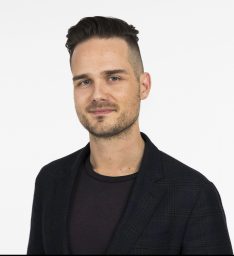‘There will be as many opportunities as there are challenges’: Mumbrella’s PR Professional of the Year Symon Madry talks leadership and change
Symon Madry is the Practice Head of Technology and Business for Red Havas. At Mumbrella’s recent CommsCon awards he won PR Professional of the Year. In this interview, Symon reflected on leadership during COVID-19, the power of bandwidth, and the importance of backing yourself.
As I congratulate CommsCon’s PR Professional of the Year award winner Symon Madry his responses are punctuated by the soft gurgles of his six-week-old daughter. For Madry, the last few months have been made particularly surreal by the birth of his first child.

Symon Madry, Practice Head of Technology and Business at Red Havas
“My daughter was born on the third of March, and I went on paternity leave on the second,” reflects Madry, “I was throwing myself into being a new dad, taking care of my wife and my little one.” But beyond the happy domestic bubble pandemic rumblings were getting louder. “By the time I came back to work I felt like the guy from 28 Days Later who went to sleep, and the world ended around him,” he confesses. His colleagues had been working remotely for two weeks, and there were no face-to-face meetings with clients – agency life as he knew it had disappeared.
Madry has built a career on embracing change. By his own account, he’s pitched loved up couples from e-harmony, sat in television studios with execs talking cloud computing, and managed everything from animal liberation protesters at events, to country music stars in Tamworth. “My approach to the first five or six years of my career was to keep asking whether I was too comfortable, whether I was learning enough, and to keep pushing for something new,” he says. Lucinda Attrill, who spearheads senior executive search at recruitment firm and CommsCon sponsor Salt & Shein notes Madry’s bandwidth has served him well. She notes that particularly in the early stages of a career, “genuine breadth of skill” is more likely to shine in agencies. Attrill adds, “specialization can be more strategic and fulfilling later on” – something Madry has now achieved in his role as Practice Head of Technology and Business for Red Havas.

